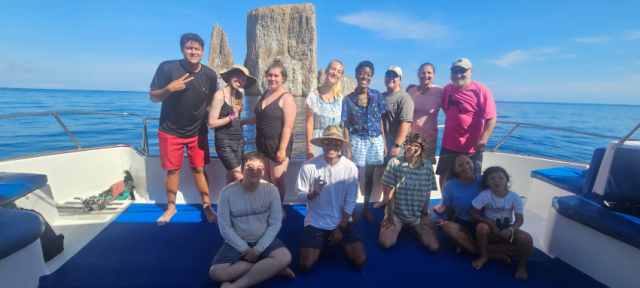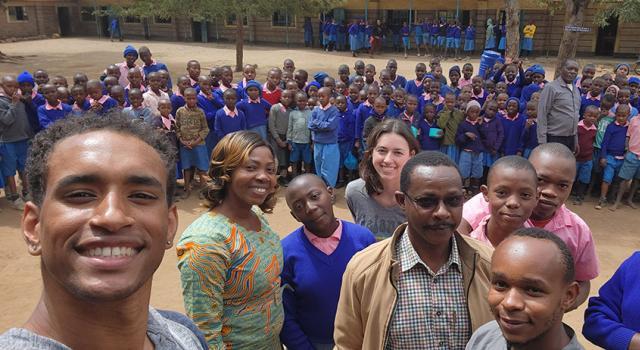Global Study Intensives Offer Hampshire Students Immersive Opportunities All Over the World

Hampshire College’s Global Education Office (GEO) offers exchange, field study, and short-term fieldwork to integrate international experiences into students’ academic journeys. Last summer, students had the chance to study diverse wildlife populations firsthand, led by expert faculty, in the Galápagos Islands.
Hampshire’s global study programs go beyond traditional education. They’re about expanding horizons, appreciating different cultures, and nurturing a passion for exploration, and students get to work directly with professors in fields they’re passionate about.
“Our faculty take Hampshire’s mission to heart during short-term field courses,” says Director of Global Education Allison Kretschmar. “They provide exceptional hands-on learning experiences in unique destinations.”
This past summer, Artemis Moleus F21 was among a group of students to take part in a short-term field study titled Behavior of Marine and Terrestrial Wildlife in the Galápagos Islands, which exposed them to life in a relatively remote part of the world and invited them to explore the exceptional diversity of wildlife found there.
For Artemis, who is studying wildlife rehabilitation and has an interest in marine biology, the two-week intensive was highly enjoyable. “This was my first time going super far from home, and I’m really happy that I had the opportunity to learn new things and be able to experience something related to my focus of study,” he said. “It was very rewarding, and I definitely feel like I learned a lot. I’d do it again just to go back to the Galápagos even for a little bit!”
Under the guidance of Associate Professor of Animal Behavior Laela Sayigh, students like Artemis split their time between land- and sea-based explorations and encountered a wide range of species, from cetaceans (whales and dolphins) and sea lions to seabirds and marine iguanas. Sayigh emphasizes hands-on learning through techniques such as photo-identification and observational and bioacoustic data collection. The group’s work contributed to an ongoing collaborative research program between Sayigh and personnel from the Universidad San Francisco de Quito (USFQ), in Ecuador, and the Woods Hole Oceanographic Institution, in Massachusetts.
“Some of my most rewarding teaching moments at Hampshire have come from short-term field courses through our Global Education Office,” says Sayigh. “My recent course was a fantastic learning experience for both students and me. We worked closely with local collaborator Daniela Alarcón Ruales at USFQ, and the students had a firsthand look at ongoing research projects. I’m excited to bring another group of students to the Galápagos next year.”
GEO offerings can change from year to year, and some students, in consultation with their academic advisors, even design their own programs.



